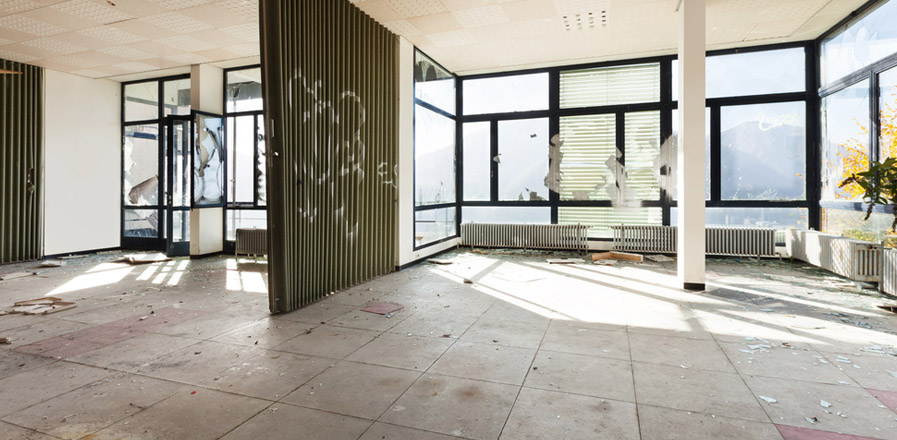Dilapidations
The main types of instructions with regard to dilapidations are:
Interim schedules of dilapidations
These are served during a lease to ensure that tenants are complying with their ongoing duty to keep the property in good repair and decoration.
Acting for landlords or tenants, we have the experience and legal knowledge to ensure that claims prepared or negotiated are accurate and reasonable.
Landlords and tenants will, in most cases, have a duty under lease agreements to ensure that properties are kept in good condition during the term of a lease, not just at expiry. A property kept in good repair will ensure that your investment is protected.
Acting for landlords, we inspect their properties and, after careful consideration of the lease covenants and condition of the property, we prepare detailed schedules identifying the works that tenants need to carry out to meet their obligations. We then monitor tenants’ works to ensure that they are carried out to the required standard or, if necessary in extreme circumstances, work with your legal advisors to obtain entry to carry out the works and recover the costs as a debt from them.
Where a Tenant is served with an interim schedule, we will review the landlord’s claim on your behalf, and negotiate the schedule and timescales for completion of works to ensure that your interests are protected. We can also manage the required works on your behalf, if required. Defences to such claims are numerous, and the legal issues complex. As such, if you are served with an interim schedule of dilapidations, do not hesitate to contact us for advice.
Terminal / final schedules of dilapidations
These are prepared near, at or after expiry of a lease. Similar to an interim schedule, a terminal or final schedule will detail the tenants’ breaches of covenant and repairs required. However, as the lease is about to, or has ended, the claim will need to be quantified, including the costs of each item of repair, reinstatement and decoration, potential loss of rent, service charge, professional fees and VAT.
For landlords, we prepare detailed schedules of dilapidations to reflect your loss as a result of the tenants’ non-compliance with the terms of the lease. In doing this, we always work closely with you and your property advisors to ensure that realistic and accurate claims are prepared.
Early consideration needs to be given to your intentions for the property. Whether any tenants’ alterations need to be removed? Are there new tenants in waiting? Would you prefer the property to be left in repair, or a financial settlement? And we need to take into consideration current commercial market conditions. Ideally, we recommend that Building Surveyors are appointed at least 2-3 months in advance of expiry to enable all issues to be considered.
For tenants, is the scope of the landlord’s schedule and costs identified accurate? Is the standard of repair justified or could it be achieved by other methods? Can the claim be limited by statutory relief? Have the current commercial market conditions and landlord’s intentions for the property been taken into consideration? We will consider all of these issues and many more when reviewing and negotiating the landlord’s claims on your behalf, to ensure that a fair and reasonable financial settlement is agreed.
Dilapidation liability assessments
Plan ahead! In our experience it is generally always more cost-effective for tenants to pre-empt a landlord’s claim for dilapidations. This enables a planned approach to repairs required or the ability to enter into informed early negotiations with your landlord.
Whether your lease has only a few months or several years left to run, we recommend that future dilapidations claims be considered. An unexpected claim can be quite a shock to many tenants and the financial implications can be serious.
We carry out a thorough assessment of your leases/licences and survey the premises prior to preparing a detailed report, identifying potential dilapidations issues. We will also provide estimates of costs for the works and strategic advice with regard to complying or defending this future claim. With this information, you can programme in phased repairs to suit your operations so that the property is left in repair at expiry or, if operations do not allow this, appropriate funds can be set aside to cover these potential future costs.

